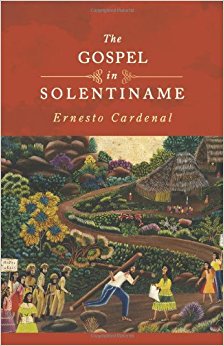Eighteenth Sunday in Ordinary Time
Sr. Phyllis O’Toole, MM
August 13, 2017
Isaiah 55:1-3; Psalms 145:8-9, 15-16, 17-18; Romans 8:35, 37-39; Matthew 14:13-21
This Sunday the Word of God is action-packed. An ancient prophet, hounded by his enemies, seeks refuge in a cave. “The word of God came to him there. ‘What are you doing here, Elijah? Go out and stand on the mountain before God.’ There came a mighty wind, but God was not in the wind. After the wind came an earthquake, but God was not in the earthquake. After the earthquake came a fire, but God was not in the fire. And after the fire came a gentle breeze. When Elijah heard this he covered his face with a cloak and went out and stood at the entrance of the cave.” And God told him what he had to do to save himself and the people.
Jesus made the disciples get into the boat and go to the other side of the Sea of Galilee while he dispatched the crowd. Then Jesus went up the mountain alone to pray. Meanwhile the boat with the disciples was tossed around by the waves. In the early morning before dawn Jesus came toward them walking on the water. They were terrified and cried, “It’s a ghost!” Jesus said, “Take courage! It is I. Don’t be afraid!”
Peter cried out, “If it’s you, Lord, bid me to come.” And he got out of the boat and started to walk on water. But when he felt the strong wind, he started sinking and cried, “Lord, save me!” Jesus reached out and grabbed him, saying, “Why did you doubt, oh you of little faith?” They got into the boat and the wind died down and the disciples in the boat bowed down before Jesus saying, “Truly, you are the Son of God!”
What is the message this Sunday? Verse 9 of Psalm 85 rings it out:
“Your salvation is near, oh God, for all who fear you, and your glory will dwell in our land.”
God saves; call to God in need. In my experience, when I called to God in crisis with my father’s illness, and in crisis with my vocation, God saved me and brought me to Maryknoll.
Before the people of Managua, Nicaragua formed the Church of St. Paul the Apostle, which was the first Christian base community in Nicaragua that grew out of the Liberation Theology movement, they were living on their own without much faith, suffering and struggling to make a living and care for their families. Life was not easy, and their hearts were crying out. God sent Padre Jose, Sister Estella and me to accompany and guide them into the Family of God; and the community is still going strong in Managua today.
Also in Nicaragua, the poor farmers , unschooled and without resources on the Solentiname Islands, welcomed Padre Ernesto Cardenal when he returned to his native country from the Abbey of Gethsemani, a monastery of Cistercian monks in Kentucky, where he had left his friend and mentor, Thomas Merton. Sadly Ernesto didn’t have the health to continue with the Trappists, but God sent him to the Solentiname Islands to befriend his own people and, through Ernesto’s writing, this Christian community became a shining witness of God’s saving grace throughout the 1980s and 1990s.
And so will God do with all of us who cry out to God in need and wait for our God of LOVE to save us.
Photo: Cover of “The Gospel of Solentiname” by Father Ernesto Cardenal, Orbis Books (Maryknoll, NY), 2010 and available for purchase at at http://www.orbisbooks.com/the-gospel-in-solentiname.html

